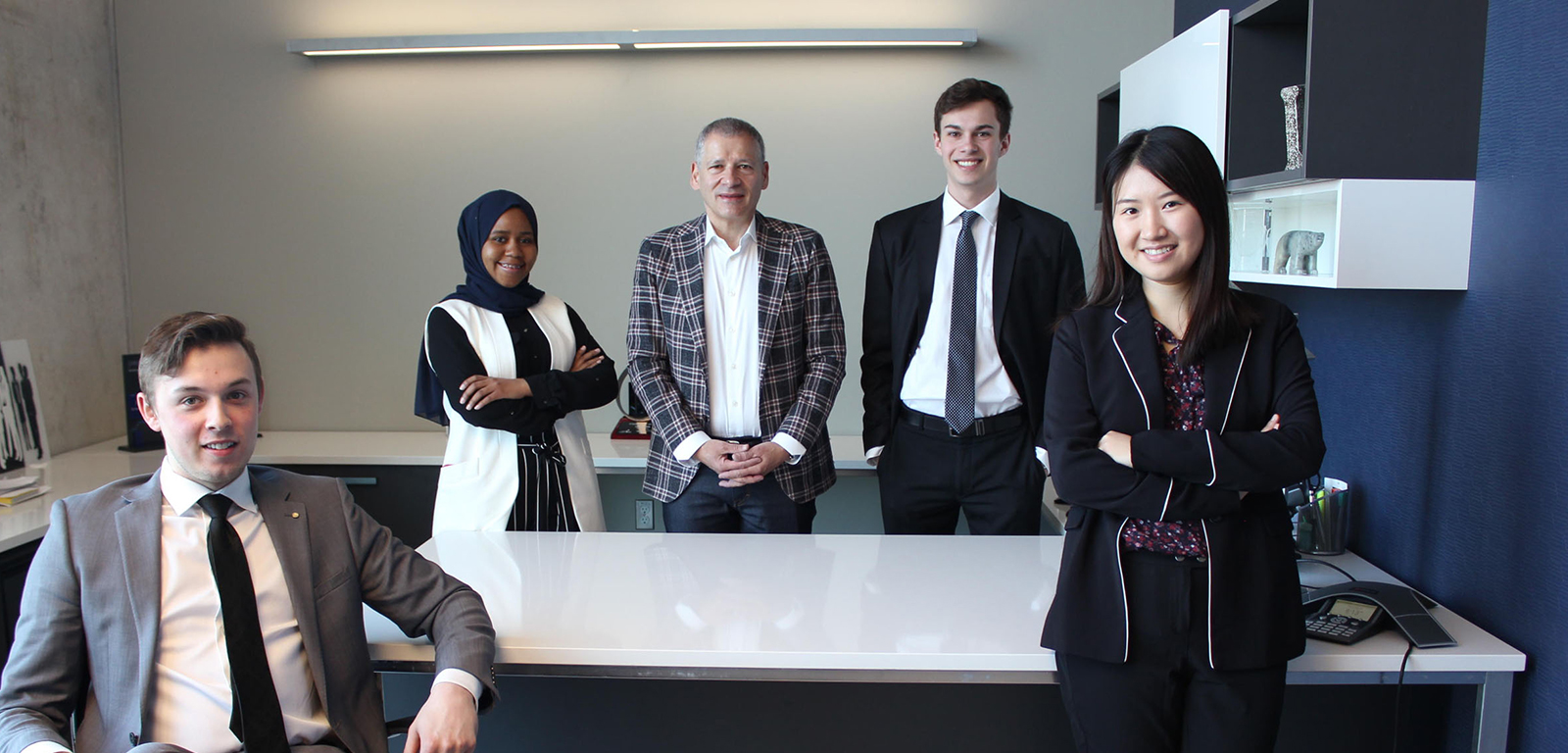

If you don't have the required entrance level you have the possibility to take an admission test. The test will probably take place in May/June. The admission test will be conducted in the form of a Differential Aptitude Test (DAT).
For all course programmes conducted in the English language, a minimum level of proficiency in the English language is required, as detailed in the table below. You must substantiate your level of English-language proficiency by submitting evidence in the form of a language test result pertaining to one of the below-mentioned courses. The results of the test may not be older than 2 years.
TEST - Minimum score bachelor
IELTS (Academic) - 6,0 (no subscore under 5,0)
* = Only if the units ‘Speaking & Writing’ and ‘Listening & Reading’ have been completed successfully. TOEIC = Test of English for International Communication, ESOL = English for Speakers of Other Languages
TOEFL paper - 550
TOEFL computer - 213
TOEFL internet - 80
TOEIC* - 670
Cambridge ESOL - CAE-C
At TCL, you learn how to thoroughly analyse trends. And then how to translate these insights into new, creative, and future-proof concepts. We teach you how to visually present your research results and how to shape, test and improve concept designs. In the first two years, you do this for seven lifestyle sectors: Food, Living, Appearance, Health, Human Movement, Leisure and Work.
More info: click here
Propaedeutic: year 1 (Orientation)
Project: professional product
The first year is divided in four quarters. In each you work with a team on a project. The end result is a professional product, usually a trend report and/or concept for a company in the professional field. The very first months of the programme thus immediately introduce you to the two most important professions for which you are educated:
Trend researcher
Concept designer
Skills, knowledge, inspiration
Creating a professional product requires specific skills, knowledge and inspiration. You develop these skills by working individually or in a team during various modules. The necessary knowledge is provided through the courses/classes and meetings with experts, while you also study relevant literature. Inspiration is sought – and found – at the expositions and other events you visit yourself. Along the way, you gradually learn to master the various tasks that you will need as an educated professional.
Lifestyle sectors
The first year also introduces you to the various lifestyle sectors:
Health (sports/exercise/fitness)
Food
Leisure
Appearance (fashion/beauty)
Living (Housing and home environment)
Work
Assessment
During all your learning activities, you gather the so-called evidence materials. These are concrete examples of everything you have achieved and learned. You collect feedback on these materials among fellow students, teachers, client companies, and others. By presenting this evidence material during an assessment (demonstration), you prove that you master the desired level of practical skills, knowledge and creativity. The first year consists of two assessments: one mid-year and one at the end of the academic year. Each assessment can offer a maximum of 30 study credits. To gain your propaedeutic degree (completion of the first year) you need 60 points, with a minimum of 54 to pass on to the main phase. There are no knowledge tests. You are free to decide yourself how to prove you acquired the desired knowledge level. Of course, you are thoroughly coached and guided throughout that process.
Main Phase: year 2 (Immersion)
Combinations
International experience
Gain international experience by working on international assignments, and during a study trip focused on an assignment for a company abroad.
The Idea Factory
The Idea Factory
Main phase: year 3 (Immersion)
Internship
The third year consists of a minor and an internship period.
The internship is an important part of your studies: this is the time to put into practice everything you learned in the first two years.
The internship mostly offers an opportunity to gain practical experience as concept developer.
We encourage you to do your internship or minor abroad.
Graduation phase: year 4 (Specialising)
Large selection of specialty modules
In the last year of your studies you choose a specialty, focusing on two sectors of your choice. Additionally, you can choose from a large number of specialty modules, while you further specialise your skills within the core tasks of trend research and concepting.
Mastery test
Your Mastery test also starts in the fourth year. Here you apply the knowledge that you gained in the specialty modules by designing a concept. You can freely choose the company for which you will design. In the Graduation show, you also present your final Mastery test to future employers.

Work at the many companies within the lifestyle sectors
As graduated trend researcher / concept developer, your profession is to analyse trends to develop and successfully introduce lifestyle concepts. Your employer can be any of the countless businesses in the various lifestyle sectors.
Marketing, innovation, new business, R&D...
Examples of where our students can be found are departments for marketing, innovation, new business or research & development. There also is a growing number of agencies that rely on knowledge of trends and consumer developments to create new concepts for their customers. Or you can choose to become a self-employed independent creative, or start a career as freelance concept designer.
Large network
TCL is firmly rooted in the professional practice. The Academy’s network consists of over 100 companies, institutions and organisations, all eager to work with our interns and graduates. Among our affiliates are famous (Dutch) brands such as Achmea, De Efteling, Fair Trade Original, GGD, Hema, Leolux, Mundial Productions, Nike, Philips, Thermea 2000 and The Sting.

Health insurance: EUR €652.80 per year